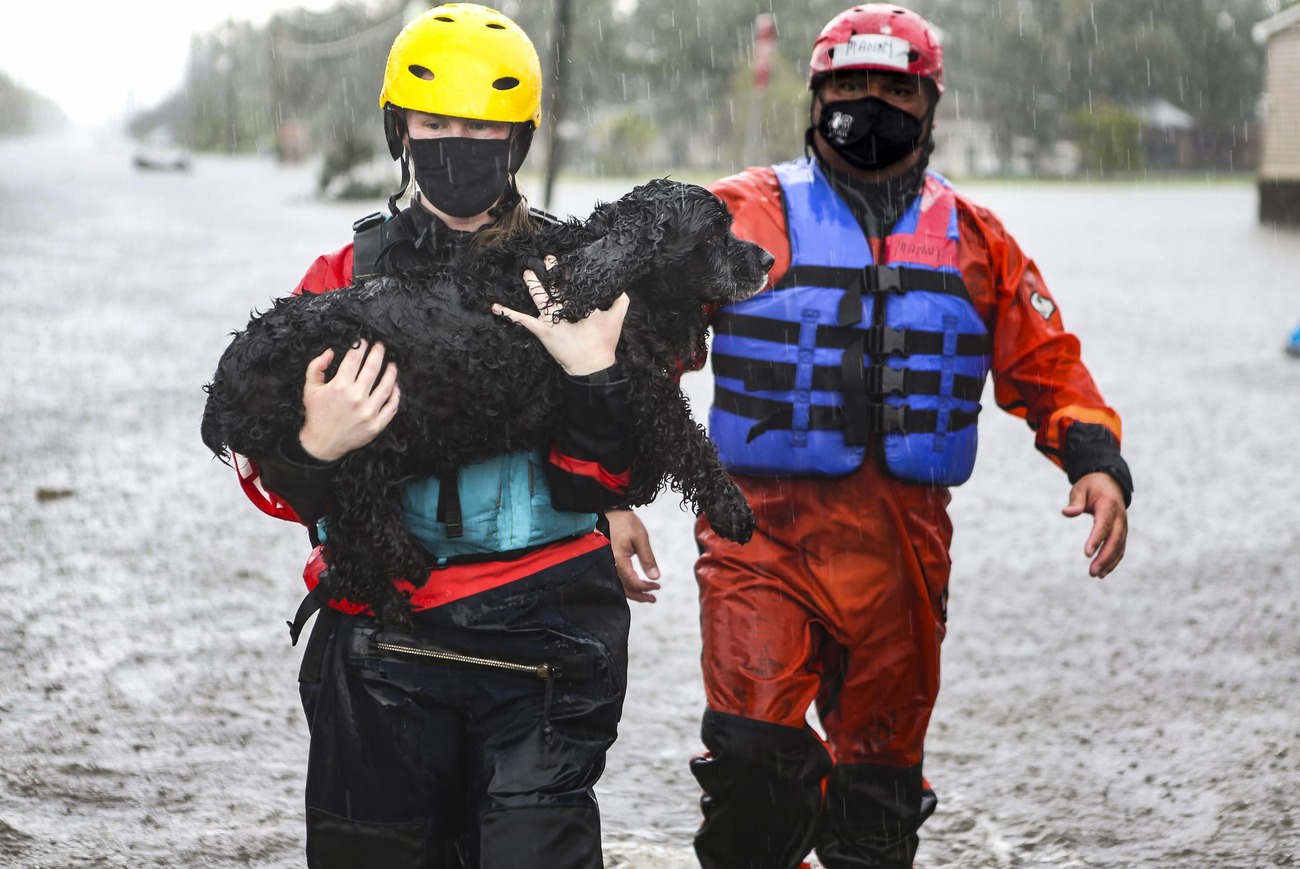Danielle Kessler
the PAW Act, an important measure to protect animals during disasters has been signed into law
the PAW Act, an important measure to protect animals during disasters has been signed into law

This week, President Biden signed into law the Planning for Animal Wellness (PAW) Act, a bipartisan measure championed in the U.S. Senate by Senators Gary Peters (D-MI) and Rob Portman (R-OH), and led in the House by Representative Dina Titus (D-NV-01).
The PAW Act, an IFAW-endorsed measure, directs the Federal Emergency Management Agency (FEMA) to form a working group comprised of animal rescue and disaster response experts. This group of outside experts, which could include veterinarians, animal rescuers, academics and others, will determine whether current federal guidance is consistent with best practices in animal care for disaster preparedness, response, and recovery. If not, FEMA is to update its guidance, helping to ensure that families and pets affected by natural disasters can remain safe through effective planning.
“As a proud dog owner, it is concerning that animal and veterinary needs are often overlooked during disasters,” said Senator Portman. “I am pleased this bipartisan legislation has been signed into law because it will require FEMA to establish a working group with outside experts to review current federal guidance regarding animals in disaster preparedness, response, and recovery to ensure it aligns with current best practices. This law will help ensure Ohio families and other animal owners have up-to-date guidance for disaster preparedness.”
“As a member of the Animal Protection Caucus, I was pleased to introduce the PAW Act to help protect our beloved pets during disasters. When preparing for and responding to catastrophes, animal welfare often is overlooked, and sadly, some owners make the risky decision of refusing to evacuate in order to stay with their pets. The PAW Act will ensure first responders and federal disaster response workers can help pet owners plan to keep every member of their family, even the furry and feathered ones, safe,” said Congresswoman Titus (NV-01).
“No one should have to risk their lives because they refuse to abandon beloved pets before a natural disaster,” said Senator Peters. “This new law will help make sure that FEMA and first responders in Michigan and across the nation can help protect every member of our families – even the ones with four legs and fur.”
The PAW Act is consistent with IFAW’s longstanding calls for the comprehensive inclusion of animals in disaster planning. Our emergency responders have deployed to rescue animals and support communities impacted by natural disasters across the U.S. (and beyond), from hurricanes and floods to wildfires and tornados. Through this courageous work, they have seen firsthand the importance of effective planning for animals in disasters.
In 2016, IFAW helped to save more than 300 domestic animals during devastating floods in Louisiana, and stepped in to help another 300 animals soon after that when Hurricane Matthew hit North Carolina. In 2017, IFAW cared for hundreds of animals saved from the Wall Fire in California, and helped to transport, care for shelter and otherwise support more than 1,500 animals impacted by hurricane during the same year. More recently, IFAW has been on the ground in response to California’s Camp Fire and Dixie Fire, as well as deadly floods that swept parts of eastern Kentucky in mid-2022. Beyond Rescue: Animals in Disasters highlights the work of IFAW’s Disaster Response & Risk Reduction team on the ground in the U.S. and stresses the importance of including animal disaster relief in more broad emergency disaster response efforts while offering a blueprint of how to better prepare in the future.
By enacting the PAW Act, our leaders in Washington have taken an important step to reinforce this rescue work. Through enhancing collective preparedness and acknowledging that adopting best practices is key to protecting both human and animal lives in the wake of natural disasters, this landmark measure represents meaningful progress toward ensuring a safer future for us all.
Related content
Our work can’t get done without you. Please give what you can to help animals thrive.